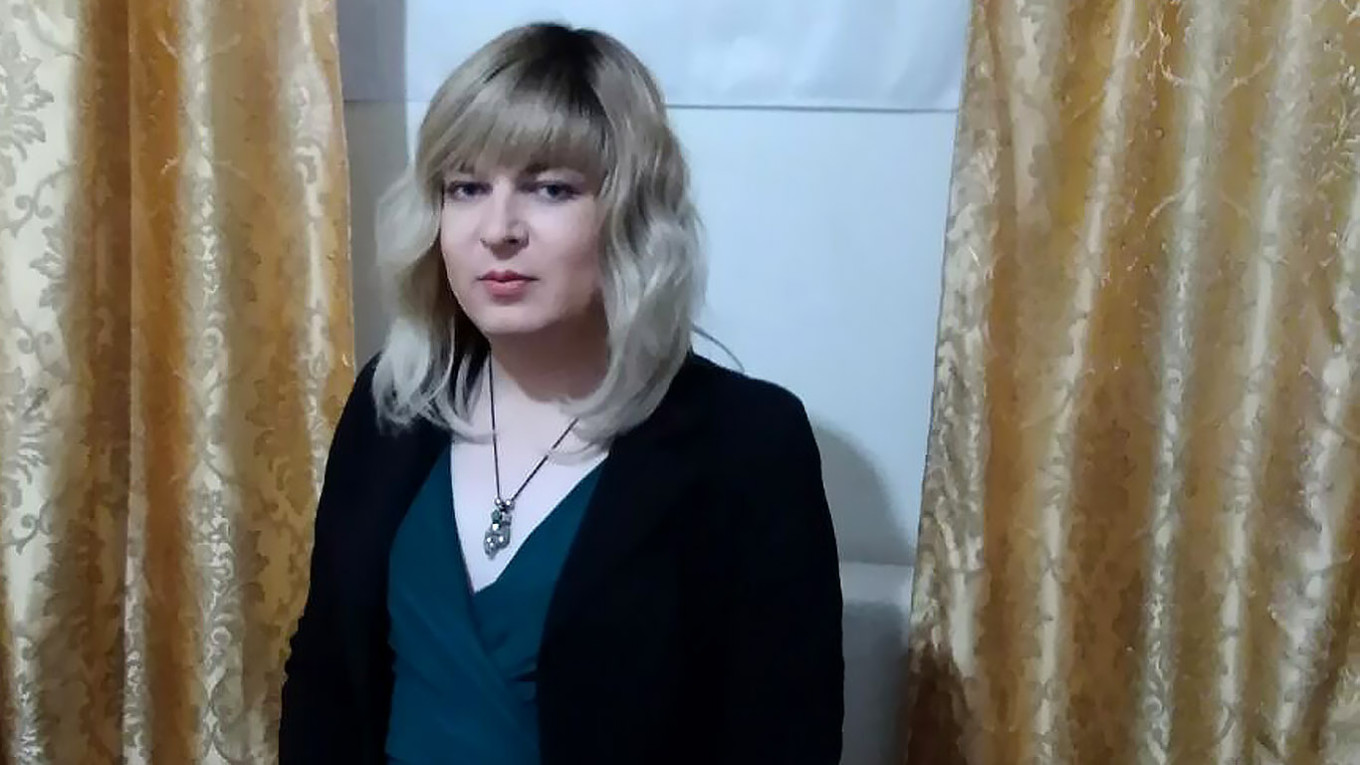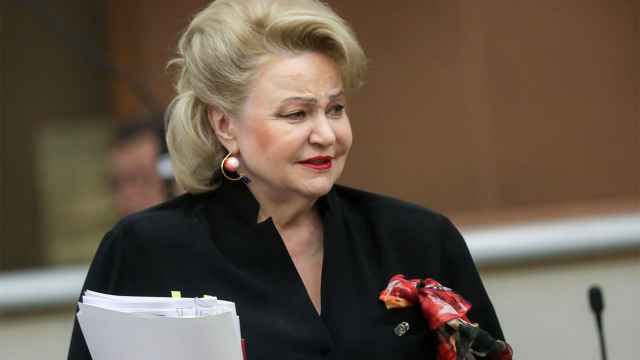Russia’s first openly transgender politician, who last month made the surprise announcement that she had returned to her gender assigned at birth, said in an interview published on Tuesday that she underwent a detransition after receiving threats that she would be sent to a psychiatric hospital.
Yulia Alyoshina, who dropped a bid last year to run for governor in Siberia’s Altai region as a member of the opposition Civic Initiative party, told followers in May that she “realized” she was a man and started going by the name Roman Alyoshin.
“I went through old albums of my ancestors, prayed for them, and it helped the idea set in that I’m a guy,” she wrote on Telegram at the time. “I’m a patriot of my country, that’s why I live in Russia. I apologize to all the Russian people!”
But in an interview with the news outlet Novaya Gazeta Baltiya, Alyoshina said she wrote those Telegram posts after receiving “insider information that the Russian authorities want to lock me up in a psychiatric hospital.”
“I made posts on my Telegram channel in May and June because of this stress,” Alyoshina was quoted as saying by the news outlet. “I’ve been under severe stress since winter.”
Incarceration at psychiatric institutions was often employed as punishment by the Soviet authorities against government critics, and in recent years it has made a comeback in Russia.
In the interview published on Tuesday, Alyoshina said she sought help from the Russian Orthodox Church but received “repulsive” treatment.
Shortly after she dropped her bid to run for Altai region governor, President Vladimir Putin banned legal and surgical sex changes.
Months later, Russia’s Supreme Court outlawed the so-called “international LGBT public movement,” leading to police raids on queer venues, imprisonment for displaying “extremist symbols” such as the rainbow flag, and criminal prosecutions of people linked to the LGBTQ+ community.
Alyoshina said she had asked the Supreme Court about her right to “exist” in Russia as a transgender person. According to her, the court responded that it “doesn’t provide explanations.”
“I’m in a situation where I have not much to lose now,” she told Novaya Gazeta Baltiya.
A Message from The Moscow Times:
Dear readers,
We are facing unprecedented challenges. Russia's Prosecutor General's Office has designated The Moscow Times as an "undesirable" organization, criminalizing our work and putting our staff at risk of prosecution. This follows our earlier unjust labeling as a "foreign agent."
These actions are direct attempts to silence independent journalism in Russia. The authorities claim our work "discredits the decisions of the Russian leadership." We see things differently: we strive to provide accurate, unbiased reporting on Russia.
We, the journalists of The Moscow Times, refuse to be silenced. But to continue our work, we need your help.
Your support, no matter how small, makes a world of difference. If you can, please support us monthly starting from just $2. It's quick to set up, and every contribution makes a significant impact.
By supporting The Moscow Times, you're defending open, independent journalism in the face of repression. Thank you for standing with us.
Remind me later.






